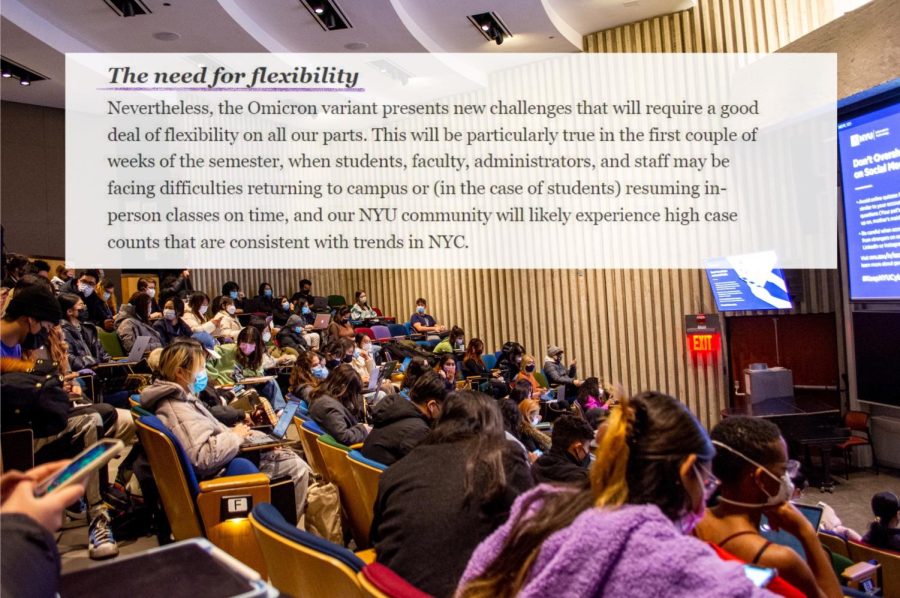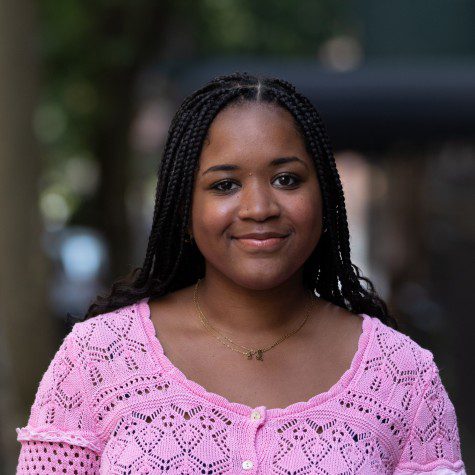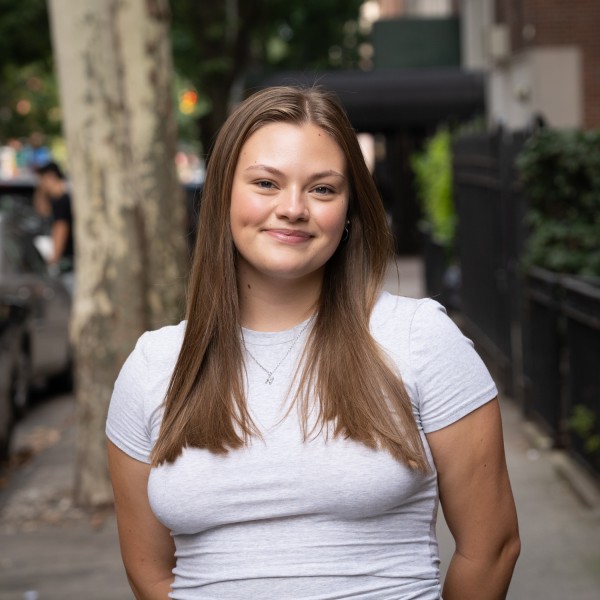Some faculty unwilling to allow remote learning, despite NYU guidance
NYU’s return to in-person instruction has left some students struggling to receive virtual accommodations during the first week of classes.
NYU announced in a Jan. 12 email that the spring 2022 semester will be held in person. Senior leadership acknowledged that flexibility regarding in-person classes would only be offered temporarily at the start of the semester. (Staff Photo and Illustration by Manasa Gudavalli)
January 25, 2022
Tisch first-year Indranil Basu decided to attend class remotely until COVID-19 cases dropped to a lower rate. But as NYU prepared to resume in-person instruction for the spring semester, one of Basu’s recitation leaders said that classes will not be recorded and that in-person attendance is mandatory.
“Most of the instructors seem to be assuming that we are on campus and choosing to stay in because of isolation and quarantine, and not the fact that we may be off campus delaying our post-winter break move-in due to fear,” Basu said.
In NYU’s announcement, university leadership acknowledged that flexibility regarding in-person classes would be offered for the first two weeks of the semester. Students are required to consult faculty for any specific online or asynchronous accommodations if they test positive for COVID-19 or come in contact with someone who has the virus.
Students interviewed by WSN who requested to take online classes have received unclear guidance from their professors as the university resumes fully in-person instruction. NYU’s decision, announced Jan. 12, came amid a surge of cases of the omicron variant in New York City, which has begun to steadily decline over the last couple of weeks.
Some professors are offering remote options, such as allowing students to watch recordings of lectures instead of allowing synchronous remote attendance. Others aren’t offering any options for online attendance, such as the instructor for one class in the Spanish department, who sent the following email to her class.
“This course will be completely in-person,” the email reads. “If you anticipate not being able to join the class in person, please wait until another semester to take it.”
Charlie Dodge decided to stay home in California until February since she was concerned about contracting COVID-19. (Dodge previously worked as WSN’s creative director.) She contacted her professors to ask whether she could attend classes remotely. But by the first day of class on Monday, Jan. 24, she had only received a response from one.
“It’s really unfortunate and irresponsible that the administration has basically put all of the responsibility on students to ask their professors for permission to stay remote,” Dodge said. “Especially when the university has already very obviously invested a lot of money setting up infrastructure for remote classes.”
In a Jan. 14 email addressed to faculty, professors were instructed to support students by providing asynchronous materials, allowing for a Zoom option during normal class time, and offering additional help outside the classroom to ensure students attending virtually could stay up to date with class material. Faculty should provide these accommodations for at least the first two weeks of the semester, according to NYU, but they are not required to do so for the remainder of the semester.
Several comments on a Reddit thread expressed frustration about certain professors and departments that have refused to provide online options at the beginning of the semester. One user said they dropped three of their four classes due to a lack of instructor flexibility.
CAS senior Kourtney Colbert, who visited family in Colombia over winter break, was unable to schedule a booster shot before NYU’s deadline for compliance with the requirement. While Colbert was eventually able to enroll in online classes and appreciates how accommodating the university was to her situation, she is worried for other students who have not had the same experience.
“I’m concerned for immunocompromised students and faculty who are going to have to put their health at risk for something that is so avoidable,” Colbert said. “I’m also concerned for people like me who are trying to get the booster but can’t right now and are being forced to pay for classes they can’t attend because the university refuses to offer any type of leniency.”
Contact the News Desk at [email protected].



























































































































































